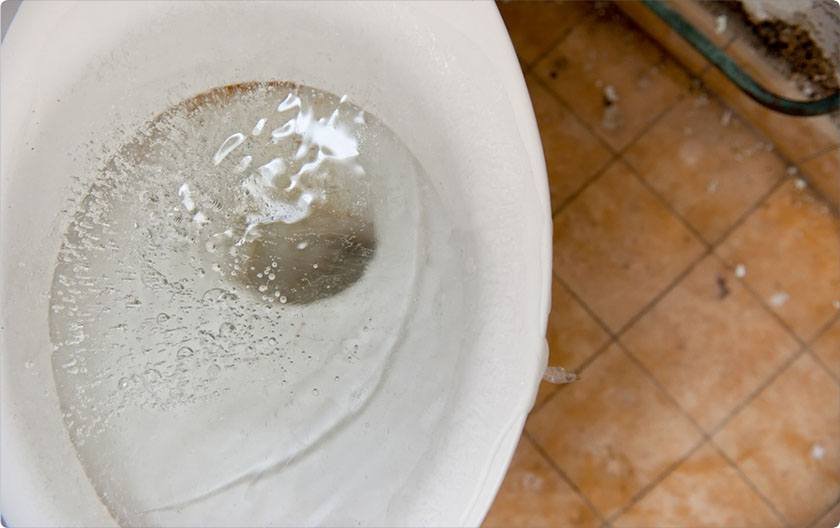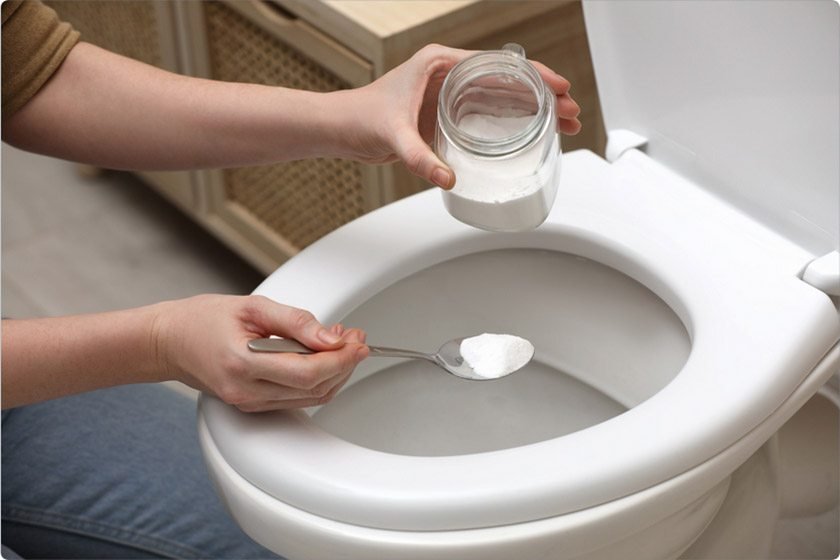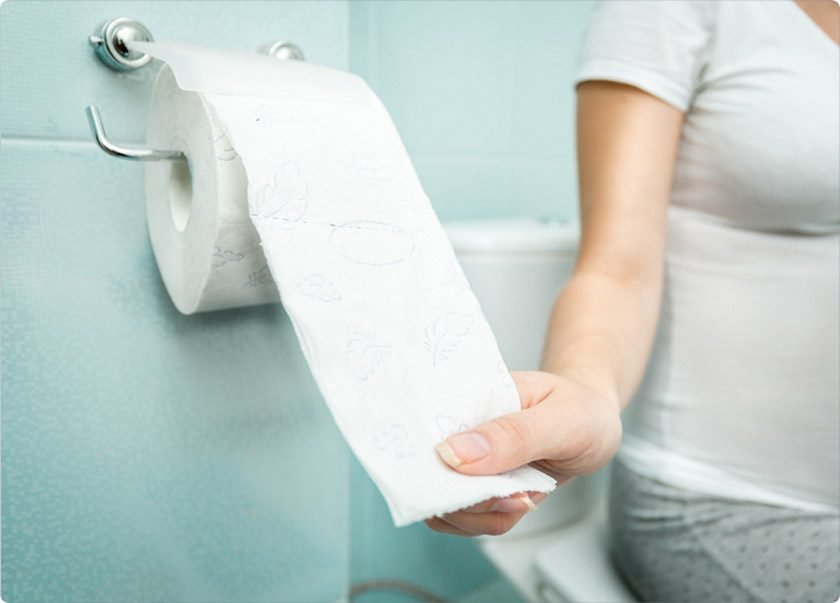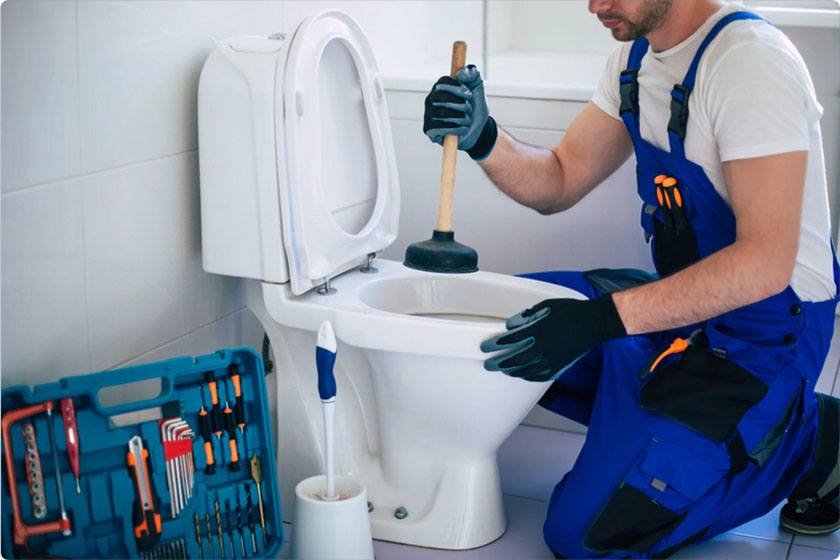Addressing a clogged toilet is a challenging situation that any homeowner may encounter. This issue is not only inconvenient but can also result in more significant plumbing problems if not addressed in a timely manner.
This article emphasizes the importance of unclogging toilets, identifies common causes of clogs, and discusses the risks associated with the use of harsh chemicals.
Additionally, it offers the best way to unclog toilet clogs using effective, eco-friendly methods without relying on harmful substances, along with practical tips to prevent future clogs.
Readers are encouraged to explore these practical solutions to maintain the efficient operation of their bathrooms.
Why Is It Important To Unclog A Toilet?
Unclogging a toilet is essential for maintaining proper sanitation and ensuring the effective functioning of the plumbing system.
A clogged toilet can result in unpleasant odors, overflow issues, and significant plumbing complications that necessitate immediate attention. Moreover, failing to address a clogged toilet may worsen plumbing concerns, leading to costly repairs or replacements.
By recognizing the importance of timely unclogging, individuals can prevent future complications while also promoting environmentally friendly practices to uphold cleanliness and hygiene in the bathroom.
What Are The Causes Of A Clogged Toilet?
Understanding the causes of a clogged toilet is essential for effective maintenance and prevention. Common contributors include:
- excessive use of toilet paper
- foreign objects
- grease buildup
- mineral deposits within the plumbing system
Each of these factors can result in blockages that impede the toilet’s functionality and lead to plumbing issues. By identifying these causes, homeowners can adopt improved practices and preventive measures to ensure their toilets operate efficiently without the need for harsh chemicals.
Too Much Toilet Paper
One of the best ways to unclog a toilet is by addressing excessive toilet paper usage, as it often contributes to clogs by overwhelming plumbing systems designed to handle only a limited volume of waste.
Over time, the use of an excessive amount of toilet paper can lead to blockages that impede proper toilet function, necessitating effective solutions to prevent backups and maintain optimal performance.
To address these issues, it is imperative to educate users on the importance of moderation. Encouraging individuals to utilize only the necessary amount of toilet paper can significantly enhance plumbing health.
Additionally, opting for biodegradable or dissolvable alternatives can reduce the risk of clogs, as these products decompose more readily in water. Regular inspections of plumbing systems and the use of maintenance products, such as enzyme cleaners, can further enhance performance.
By implementing these practical strategies, households can ensure smooth drainage and mitigate the inconvenience of plumbing repairs.
Foreign Objects
Foreign objects inadvertently flushed down the toilet can result in significant plumbing issues, leading to clogs that may necessitate emergency repairs.
Items such as toys, sanitary products, and various household items can become lodged in the plumbing trap, obstructing the flow of waste and water, and thereby causing considerable inconvenience.
Plus these common offenders, everyday items like paper towels, dental floss, and food scraps can severely disrupt plumbing systems.
To mitigate such problems, it is essential to ensure that only human waste and toilet paper are disposed of in the toilet. Educating all household members about proper toilet hygiene is crucial, as even a minor oversight can lead to substantial repair expenses.
Establishing a designated container for disposable items and closely monitoring young children is the best way to unclog toilet and enhance plumbing safety, ultimately preserving the functionality of the toilet and preventing costly emergency repairs.
Mineral Buildup
Mineral buildup can develop over time in toilets, particularly in regions with hard water, resulting in clogs and diminished toilet efficiency. This accumulation of minerals can impair flushing capabilities, leading to plumbing challenges that necessitate ongoing drain maintenance and attention.
Over time, minerals such as calcium and magnesium can accumulate, forming deposits that obstruct water flow and hinder the overall performance of the toilet.
These deposits often settle within the siphon jet and trap, exacerbating inefficiencies and potentially requiring costly repairs if not addressed in a timely manner.
To prevent mineral buildup, regular cleaning with vinegar or a specialized toilet cleaner can effectively dissolve existing deposits, while the installation of a water softener can help mitigate future accumulation.
Additionally, routine inspections for stains or slow flushes can assist in identifying issues early, ensuring optimal toilet functionality and longevity.
What Are The Risks Of Using Harsh Chemicals To Unclog A Toilet?
 The use of harsh chemicals for unclogging toilets presents considerable risks to both individual health and the plumbing system. These chemical cleaners have the potential to corrode pipes, resulting in expensive repairs.
The use of harsh chemicals for unclogging toilets presents considerable risks to both individual health and the plumbing system. These chemical cleaners have the potential to corrode pipes, resulting in expensive repairs.
Additionally, they can introduce harmful substances that may adversely affect the air quality within the home.
Moreover, many of these products pose significant environmental risks, making non-toxic solutions the best way to unclog toilet responsibly and safely.
Harmful To Your Health
Chemical exposure from harsh toilet cleaners can pose significant health risks, including respiratory issues and skin irritation, among others.
Prolonged use of such products may compromise the well-being of individuals within the household, highlighting the necessity for safer alternatives that do not present health threats.
Moreover, these chemicals can accumulate in the environment, contributing to water pollution and adversely affecting local ecosystems.
Many households remain unaware of the cumulative effects these substances can have not only on human health but also on environmental integrity.
Transitioning to healthier, eco-friendly alternatives such as vinegar, baking soda, or castile soap can substantially mitigate these risks. These natural cleaners not only effectively sanitize toilet surfaces but also provide a gentler solution for both humans and pets.
By making this simple adjustment, individuals can safeguard their health and contribute positively to environmental preservation, fostering a cleaner home devoid of toxic chemicals.
Damages Your Plumbing System
The utilization of harsh chemicals can result in irreversible damage to plumbing systems, leading to the corrosion of pipes and fixtures over time. This deterioration may result in leaks, clogs, and a decline in overall plumbing efficiency.
Therefore, it is essential to seek effective unclogging methods that are safe for plumbing hardware.
Rather than relying on aggressive substances, individuals should consider gentler alternatives such as baking soda and vinegar, which can effectively dissolve buildup without compromising the integrity of the pipes.
Regular maintenance, including periodic inspections and the implementation of strainers to capture debris, plays a vital role in extending the lifespan of plumbing systems.
By prioritizing these safer practices, homeowners not only safeguard their plumbing but also contribute to a healthier household environment. Adopting these careful strategies emphasizes the importance of responsible plumbing care.
Pollutes The Environment
Using harsh toilet cleaners isn’t the best way to unclog toilet, as it poses health risks and contributes to environmental pollution, with chemicals potentially leaching into water systems and harming local ecosystems.
Choosing biodegradable products can help mitigate these risks while ensuring effective clog removal and preserving plumbing integrity.
The repercussions of chemical cleaners extend beyond individual households, creating a ripple effect that endangers wildlife and contaminates drinking water sources.
Traditional cleaners often contain phosphates and other toxic substances that, once washed away, disrupt aquatic life and alter the balance of natural habitats.
By making a conscientious switch to eco-friendly alternatives, households can play a pivotal role in reducing their ecological footprint.
Many biodegradable options are not only safer for the environment but also designed to be equally effective, offering peace of mind while promoting a healthier planet for future generations.
What Are The Best Ways To Unclog A Toilet Without Harsh Chemicals?
There are several effective methods to unclog a toilet without resorting to harsh chemicals, which can adversely affect both health and the plumbing system.
Employing natural remedies and do-it-yourself solutions not only enhances sanitation and plumbing efficiency but also offers safe, eco-friendly alternatives that can be easily accessed using common household items.
Plunger Method
The plunger method is widely regarded as one of the most effective and accessible techniques for unclogging a toilet. By creating a vacuum seal and applying force, a toilet plunger can rapidly dislodge blockages, making it an essential plumbing tool for any household.
To maximize the effectiveness of this straightforward yet powerful tool, it is imperative to select the appropriate type – preferably a flange plunger, which is specifically designed for toilets.
- Begin by ensuring that there is sufficient water in the bowl to cover the cup of the plunger, as this will enhance suction;
- Position the plunger at a slight angle against the drain and apply downward pressure gradually to build pressure without breaking the seal;
- Once suction is established, pull up sharply and repeat this motion several times.
One of the best ways to unclog a toilet is by using this method, which effectively dislodges stubborn clogs caused by waste, toilet paper, or non-flushable items, thereby restoring the toilet’s functionality efficiently.
Hot Water And Dish Soap Method
Utilizing hot water and dish soap presents a straightforward yet effective DIY solution for addressing minor toilet clogs. The hot water aids in breaking down grease buildup, while the dish soap provides lubrication within the pipes, facilitating a smoother flow of waste.
- To commence, it is advisable to prepare the area surrounding the toilet with towels to absorb any potential overflow;
- Subsequently, boil approximately one gallon of water, ensuring it does not reach a rolling boil to prevent any risk of cracking the porcelain;
- Once the water is sufficiently heated, remove it from the heat source and introduce a generous amount of dish soap;
- Allow the mixture to blend thoroughly before carefully pouring it into the toilet bowl from waist height, as this technique helps generate pressure.
Allow the solution to sit for ten to fifteen minutes, granting the soap time to penetrate the blockage. Following this period, flush the toilet to determine if the clog has been successfully cleared. This method is not only effective but also safe for your plumbing system, making it an excellent initial approach before considering the use of harsher chemicals.
Baking Soda And Vinegar Method
 The combination of baking soda and vinegar is a widely recognized natural remedy for unclogging toilets, utilizing the chemical reaction between these two ingredients to effectively break down clogs.
The combination of baking soda and vinegar is a widely recognized natural remedy for unclogging toilets, utilizing the chemical reaction between these two ingredients to effectively break down clogs.
This eco-friendly solution not only eliminates unpleasant odors but also supports the health of plumbing systems without resorting to harsh chemicals.
To implement this method, homeowners should first introduce approximately one cup of baking soda into the toilet bowl, followed by the gradual addition of one to two cups of vinegar. This will initiate a vigorous fizzing reaction that effectively dislodges organic matter and debris.
It is advisable to allow this mixture to sit for at least 30 minutes, or longer if the clog is particularly resistant. Following this period, the best way to unclog toilet is by flushing it with hot water, which can help wash away any remaining residue, ensuring that the plumbing is left clean and fresh.
This approach not only proves to be highly effective but also provides reassurance, knowing that it is a safe and non-toxic alternative for maintaining plumbing health.
Wire Hanger Method
For more persistent clogs, a wire hanger can be utilized as an effective unclogging tool when shaped into a hook. This do-it-yourself approach facilitates the targeted removal of obstructions within the toilet, offering a practical solution without the need for harsh chemicals.
By carefully straightening the hanger and bending one end into a small loop, individuals can create an improvised tool specifically designed for retrieving debris lodged deep within the toilet’s trap.
After inserting the wire hook into the drain, gentle prodding can dislodge trapped materials, allowing for the restoration of water flow. This method is particularly advantageous for clogs caused by objects that traditional plungers may struggle to remove.
The primary benefit of utilizing a wire hanger is its accessibility and cost-effectiveness, making it a preferred choice for homeowners seeking to address plumbing issues promptly.
Enzyme-based Cleaners
Enzyme-based cleaners present a natural alternative for toilet maintenance, utilizing beneficial bacteria to effectively break down and digest waste material. This approach not only unclogs toilets but also promotes long-term plumbing care without the associated risks of chemical exposure.
By leveraging the capabilities of these specialized enzymes, users can maintain their toilets in an environmentally friendly and efficient manner.
These cleaners function by decomposing organic matter, including soap scum and mineral deposits, ensuring a thorough cleanse while also preventing future build-up.
For optimal performance, it is advisable to employ enzyme-based cleaners regularly, ideally every few weeks. This practice ensures that the beneficial bacteria remain active and effective in addressing grime.
Such a routine not only keeps toilets fresh and clean but also contributes to a healthier plumbing system overall, making it a prudent choice for conscientious homeowners.
How To Prevent Future Toilet Clogs?
Preventing future toilet clogs necessitates a combination of prudent practices and regular maintenance to ensure optimal functionality.
It is essential for homeowners to comprehend the factors that contribute to clogs, enabling them to implement preventive measures.
These measures may include the mindful disposal of waste and the appropriate use of household items.
Properly Dispose Of Foreign Objects
Proper disposal of foreign objects is essential in preventing toilet clogs and ensuring plumbing safety. To maintain optimal toilet function and hygiene, the best way to unclog toilet issues is by responsibly disposing of sanitary products, wipes, and other non-flushable materials.
By educating oneself and others about appropriate disposal methods, individuals can significantly mitigate the risk of plumbing issues.
It is advisable to place a small trash bin in the bathroom specifically for the disposal of these items, thereby preventing them from being flushed. It is important to note that even biodegradable products can lead to complications if not managed appropriately.
Establishing a routine for monitoring plumbing conditions and understanding which items are suitable for flushing will greatly contribute to promoting a healthier household.
By adopting these straightforward practices, individuals can play a vital role in fostering a cleaner environment and avoiding costly plumbing repairs.
Regularly Clean Your Toilet
Regular cleaning of the toilet is essential for maintaining hygiene and preventing the accumulation that can lead to clogs. Employing safe cleaning agents and adhering to consistent sanitation practices ensures that the toilet remains in optimal condition.
Incorporating a comprehensive cleaning routine addresses not only visible dirt but also targets hidden bacteria that thrive in damp environments.
It is advisable to clean the toilet at least once a week, utilizing a disinfecting cleaner that is safe for both the bowl and the surrounding area. For hard-to-reach spots, a toilet brush with angled bristles can prove to be highly effective.
Attention to the exterior, including the handle and seat, is equally important, as these surfaces can harbor germs. To maintain freshness, it is recommended to use toilet tablets that assist in daily sanitation while helping to eliminate stains.
Use Less Toilet Paper
 Utilizing less toilet paper represents a straightforward yet effective method for preventing clogs and maintaining plumbing efficiency. By being mindful of the quantity of paper used during each flush, homeowners can significantly diminish the risk of blockages and enhance toilet functionality.
Utilizing less toilet paper represents a straightforward yet effective method for preventing clogs and maintaining plumbing efficiency. By being mindful of the quantity of paper used during each flush, homeowners can significantly diminish the risk of blockages and enhance toilet functionality.
This simple adjustment not only contributes to the longevity of plumbing systems but also promotes environmental sustainability by minimizing waste. Exploring alternatives such as bidets or reusable cloths can further reduce reliance on traditional toilet paper.
For those who may not be ready to fully transition to these alternatives, a mindful approach – such as using a single square at a time or selecting thinner sheets – can still provide substantial benefits.
By adopting these practices, individuals can foster a more sustainable bathroom routine that aligns with both personal and community well-being.
Avoid Flushing Non-Biodegradable Items
Avoiding the flushing of non-biodegradable items is crucial for maintaining the functionality of toilets and preventing plumbing issues.
Items such as plastic, wipes, and other materials should never be flushed, as they can cause serious clogging and require extensive repairs – understanding the best way to unclog toilet can help prevent such issues.
When such waste is introduced into sewer systems, it can create blockages that disrupt household plumbing and also pose larger environmental challenges, affecting local waterways and wildlife.
Many individuals underestimate the impact of these seemingly innocuous items – however, it is essential to dispose of them properly through trash bins or recycling options.
By adopting these practices, individuals can contribute to a more sustainable waste management system.
Educating oneself and others about these impacts may promote better disposal practices, thereby helping to preserve both plumbing integrity and environmental health. Check below in our FAQ section for more guidance.
The best way to unclog a toilet without harsh chemicals is by using a plunger. Make sure to use a high-quality plunger that creates a tight seal around the drain. Apply forceful yet controlled plunging motions to dislodge the clog.
Yes, you can use hot water to unclog your toilet. Pour a bucket of hot water into the toilet bowl from a height of about 3 feet. The pressure from the water may help dislodge the clog. Repeat if necessary.
Besides a plunger, you can try using a mixture of baking soda and vinegar. Pour 1 cup of baking soda into the toilet, followed by 2 cups of vinegar. Let it sit for 30 minutes, then pour hot water into the bowl and flush.
To prevent toilet clogs, only flush toilet paper and waste down the toilet. Do not flush items such as paper towels, wipes, or feminine hygiene products. You can also consider using a drain strainer to catch any large items before they go down the drain.
Yes, you can use a natural enzyme cleaner to unclog your toilet. These cleaners contain enzymes that break down organic waste, making it easier to flush away. Follow the instructions on the cleaner's packaging for best results.
If the above methods do not work, you may need to use a plumbing snake or call a professional plumber. Using a plumbing snake can help dislodge any stubborn clogs in the toilet drain. If that does not work, a plumber will have the necessary tools and expertise to unclog your toilet without using harsh chemicals.

